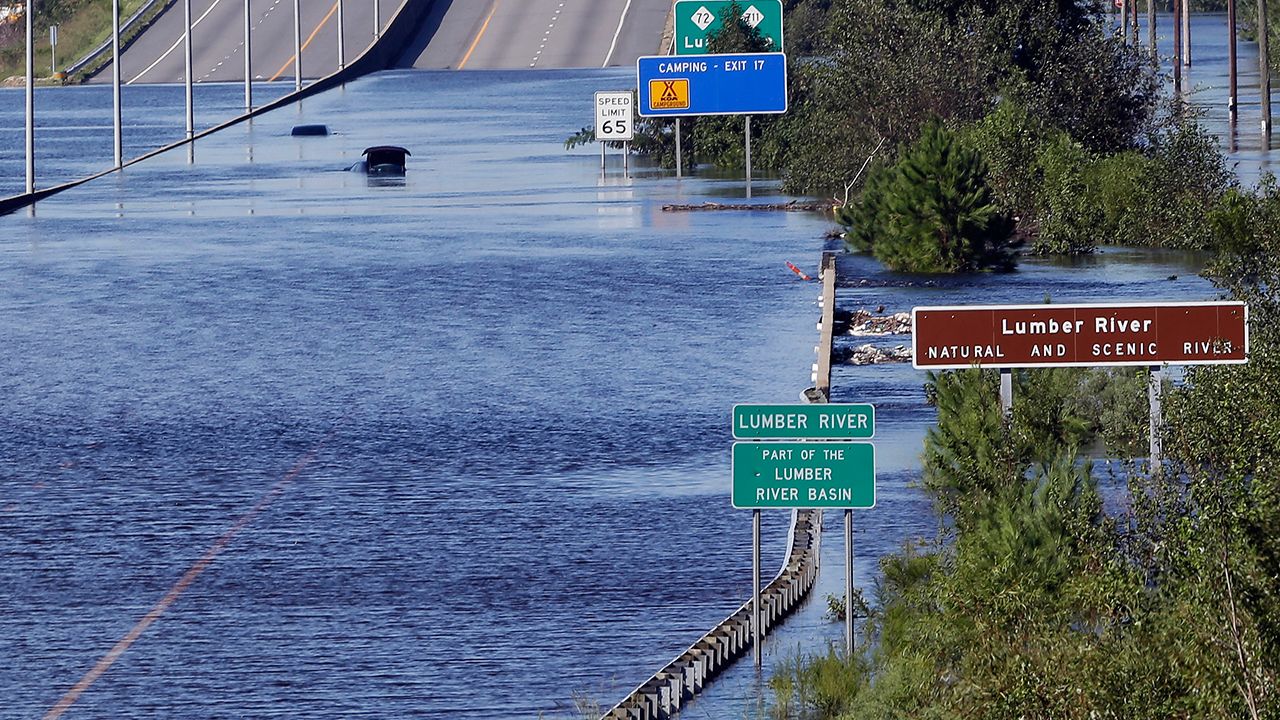Devastating flooding from hurricanes could become more likely in the coming years and decades.
What You Need To Know
- Southeastern North Carolina experienced catastrophic flooding from Hurricane Matthew in 2016 and Hurricane Florence in 2018
- A recent study found that a warming climate enhanced Hurricane Florence's rainfall
- The North Carolina Climate Science Report published earlier this year stated that the potential for freshwater flooding from hurricanes will likely increase in the future
It seems that North Carolina is already experiencing that trend. Some communities in the southeastern part of the state are still recovering from catastrophic flooding caused by Hurricane Matthew in 2016 and Hurricane Florence in 2018.
Hurricane Florence produced over 30 inches of rain in some locations near Wilmington.
A study at Stony Brook University, published in Science Advances, found that a warming climate enhanced Florence's extreme rainfall.

Climate scientists have shown that a warmer atmosphere will lead to more frequent heavy precipitation events, even in nontropical systems.

The North Carolina Climate Science Report published in 2020 stated, "Heavy precipitation accompanying hurricanes that pass near or over North Carolina is very likely to increase, which would, in turn, increase the potential for freshwater flooding in the state."
Heavier rainfall is just one of the ways a changing climate is expected to affect hurricanes in the future. A rising sea level will add to the storm surge created by the storms.
While research has not indicated that a warmer climate will increase the number of hurricanes, the North Carolina Climate Science Report and other studies have shown that the intensity of hurricanes will increase.



